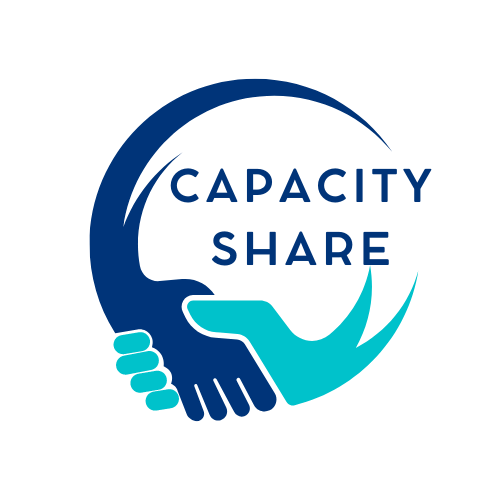
IRIS Education and Training Services ,
IRIS is a non-governmental organization which works in various domains including; research and publication, training and capacity building workshops, career counselling and career opportunities, education etc
Welcome to IRIS Education and Training Services
IRIS education and training services private limited is an emerging, inventive non-governmental organization, registered under companies’ act 2017,
IRIS Education and Training Services is a dynamic organization dedicated to enhancing education, training, and research services for communities affected by the adverse impacts of climate change. With a strong commitment to sustainable development,
IRIS aims to empower individuals and communities to overcome the challenges posed by climate change and build resilient livelihoods. By focusing on the identification of potential cottage industries, skill development and training, access to finance, production and marketing networks, sustainable production practices, branding and marketing strategies, cooperative models and collaborations, mentorship and peer support, impact monitoring and evaluation, and policy advocacy, IRIS strives to create positive and lasting change.
As IRIS Education and Training Services, intended to play a vital role in mitigating the impact of climate change on the livelihoods of people in Sindh, Pakistan, by promoting and supporting, skills to develop products, E-commerce, promote the concepts of Business, entrepreneurship among youth, promotion of home-based or cottage industries. Here are some steps IRIS is working to bring about income generation and change in the income resources of peoples affected by climate change or expected to be affected in future. implementing these strategies, IRIS Education and Training Services intended to contribute to building resilient and sustainable home-based industries, empowering individuals, and improving their income generation in the face of climate change challenges in Sindh, Pakistan
- Identify potential cottage industries: Conduct a comprehensive assessment to identify suitable home-based industries that align with the available resources, skills, and market demand in the climate change-affected communities of Sindh and all other provinces of Pakistan. Consider industries such as handicrafts, textile manufacturing, food processing, pottery, leatherwork, soap making, oil making, distemper making, Masala making, and other small-scale agribusiness ventures.
- Provide skill development and training: Design and deliver training programs to enhance the skills and knowledge of individuals in the identified cottage industries. Offer courses on product development, quality control, marketing, financial management, and entrepreneurship. Focus on climate-smart practices and techniques that can increase the resilience and competitiveness of these industries.
- Provide certificates to trainees: IRIS is registered with STEVETA and STTB for certification of trades and we offer number of trades.
- Establish production and marketing networks: IRIS strive to Create platforms and networks that connect home-based industry producers with local and international markets. Develop partnerships with retailers, wholesalers, e-commerce platforms, and export agencies to ensure sustainable market access for the products.
- Promote sustainable production practices: We Advocate for environmentally friendly production practices within the home-based industries. Encourage the use of eco-friendly materials, waste reduction, recycling, and energy-efficient processes. This will not only contribute to mitigating climate change but also improve the marketability of the products.
- Develop branding and marketing strategies: IRIS Assist individuals and communities in branding and marketing their products effectively. Help them develop attractive packaging, product labeling, and online presence through websites and social media platforms. Support the participation in local trade fairs, exhibitions, and craft bazaars to showcase their products to a wider audience.
- Facilitate cooperative models and collaborations: IRIS Encourage individuals in the home-based industry to form cooperatives or collaborative networks. By pooling resources, sharing knowledge, and collectively marketing their products, they can strengthen their bargaining power, access bulk orders, and improve their income potential.
- Foster mentorship and peer support: IRIS is Establish mentorship programs where experienced entrepreneurs can provide guidance and support to individuals starting their home-based businesses. Facilitate peer-to-peer learning and knowledge exchange through workshops, networking events, and online communities.
- Monitor and evaluate impact: IRIS Regularly monitor and evaluate the impact of interventions on the income and well-being of individuals involved in home-based industries. Collect data on the number of enterprises established, income generated, market penetration, and customer satisfaction. This information will help refine and improve your programs and demonstrate the value of your work to stakeholders and funders.
- Advocate for policy support: IRIS is planning to Engage with policymakers and relevant government agencies to advocate for supportive policies and regulations that promote the growth and sustainability of home-based industries. Highlight the importance of these industries in providing livelihood opportunities, particularly in climate change-affected communities.
- Support access to finance: IRIS is planning to Facilitate access to microfinance and small business loans for individuals interested in starting or expanding home-based industries. Collaborate with financial institutions and government agencies to develop tailored financial products with favorable terms for entrepreneurs in climate change-affected communities.
Latest Jobs
-
Year founded 2020
-
Website iris.org.pk
- H#10,Gulshan-e-Kainat, Liaquat Colony, Mirpurkhas, Sindh, pakistan
- Phone: 03002811396
- Email: ameeraliabro@iris.org.pk

New Things Will Always
Update Regularly


